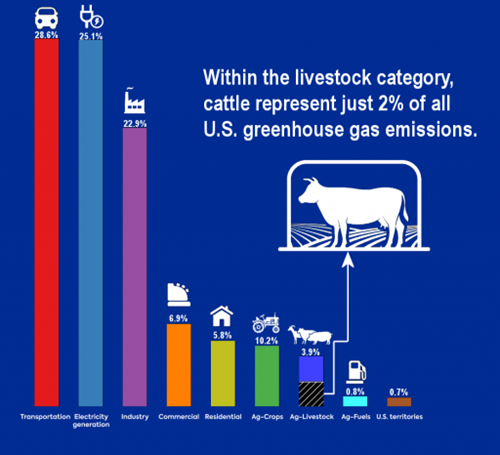A recent article by the Miami Herald, titled “Pythons are eating the Everglades. Could eating them instead help fight climate change?” highlights some problems with a study out of Australia which proposes python farming as a solution to emissions associated with cattle farming. The Miami Herald points out major practicality issues with Python farming, but in the process misses the more important point that the shift in farming to battle climate change is unnecessary.
The study, published in Scientific Reports “Python farming as a flexible and efficient form of agricultural food security,” claims that python farming is well established in Asia, and offers “tangible benefits for sustainability and food systems resilience.”
The Miami Herald explains that the study authors give several reasons for how Burmese python farming is “climate friendly:”
Scientists found they are incredibly efficient at converting small amounts of food into large amounts of high-protein, low-fat weight gain. Also important, cattle burps, farts and poops are huge sources of methane, making up an estimated 45 percent of the greenhouse gas emissions of the U.S. agriculture industry. Pythons poop every few days to even weeks, and if they do pass gas, it’s much, much less.
While it is true that cattle produce methane, the impact of those emissions are greatly exaggerated by climate alarmists and media acolytes. As discussed previously at Climate Realism (here, here, and here), the Environmental Protection Agency calculated the contributions of cattle related methane and found that cattle make up just 2 percent of all U.S. greenhouse gas emissions. (See figure below)

Methane itself also plays a very minor role in the atmosphere’s energy absorption spectrum. It has narrow absorption bands that occur at wavelengths which are already being covered by water vapor. It is also a relatively short-lived atmospheric gas, with an atmospheric lifespan of around 12 years, making it unlikely to contribute significantly to any warming effect anyway. Methane is practically irrelevant when it comes to supposed human-caused global warming, so attempting to replace cattle farming with python farming for climate purposes is a waste of time and effort at best.
Besides these errors, the Miami Herald post points out that there are serious scaling (pun intended) issues with python farming, despite the fact that it might be easier to get people to accept eating snake rather than insects, another cattle replacement popular with climate alarmists. Python farmers have to individually remove the snakes one by one from their enclosures to hand feed them, which is labor intensive and becomes increasingly difficult to accomplish with more and more snakes.
Energy efficiency aside, pythons, Miami Herald points out, don’t feed on “sustainable growth like grass,” and are exclusively carnivores, meaning some emissions will result from producing the prey used to feed the pythons, and in housing the pythons in a secure location and processing the waste.
Wild caught snake is no silver bullet either. The Miami Herald reports that some pythons caught in the Everglades “had mercury levels 100 times too high for human consumption,” and the snakes are too difficult to find in quantities that would make them a viable food source for a reasonable number of people.
Python meat is also unpalatable to most python hunters in the Everglades, not just because of the potential mercury, but also because as the Miami Herald quotes, the meat is “very chewy” but slow cooking it turns it “to slime.”
There is nothing really wrong with python farming in general, for those who like the meat, but it is not a solution to climate change. Replacing cattle farming with snake farming will have an insubstantial impact on climate change, if any at all, and it’s questionable if the labor intensity and food requirements are really carbon neutral. The Miami Herald is right to be skeptical about the future of python farming in the West.

















